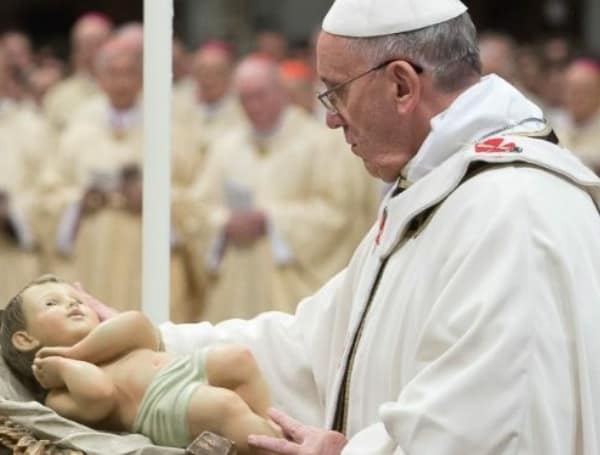Pope Francis has passed away—and the world mourns.
Prime ministers, Presidents, Kings and Queens were quick to send their condolences to the Vatican and the over 2 billion Catholics who called him their pastor and Vicar of Christ on earth.
But Francis’ legacy is a very difficult one; a legacy that many see him as a trailblazer for progressive causes and the poor, while others bewail what they saw as a Pope with heterodox theological standards.
The real issue for faithful Catholics is: did this Pope represent the Christian faith accurately to the world at large.
Indeed, there are millions of Christians who are not Catholic and who would totally reject the idea of a “Pope” or one man who claims to be “head of the church.” In fact, they would strongly and loudly protest saying that only Christ is head of the Church.
Be that as it may, the Popes have been a central figure of, not only our times, but centuries of history. That history has been extremely complicated with the “good Popes and bad Popes” syndrome that even Catholic historians consent to.
READ: Newt Gingrich Hails Diversity At National Shrine, Contrasts With Segregation
The relationship of Popes to the secular order cannot be dismissed either. While some cajoled the nations at large, others took a much harder stance when defining the relationship between the power of the Pope and the nation states. Witness Pope Boniface VIII’s bull Unum Sanctum which held that the Pope was supreme, even over Kings, Princes and nations of the world.
Certainly, we have not seen such a promulgation in our times. But the Pope exercises tremendous influence on the world. This cannot be denied whether you are Catholic, Protestant or atheist.
Perhaps the greatest objection that the Catholic Church has with Protestantism is the idea that while the Catholic Church is unified in doctrine and practice, the Protestant world is fractionated into thousands of denominations, each interpreting the same Bible verses in a myriad of ways. They would claim that each Protestant Christian is their own “pope,” interpreting the Bible and doctrine according to their opinion, while the Catholic Church has the Magisterium, the doctrinal body of the church, that decides these issues, and faithful Catholics accept—because the church teaches it.
It would seem, however, that Francis played a well-honed brinkmanship with his own church.
When asked about the sexual orientation of priests, particularly, gay priests, his answer was, “Who am I to judge?”
If Pope Francis was indeed the Vicar of Christ, representing Catholicism and Christianity, he certainly blew up centuries of his church’s teaching that condemns homosexual behavior, especially in the clergy.
Additionally, he gave approval of blessing same-sex couples describing them as “people who live the gift of love.”
Boom! Another theological grenade.
But many Catholics, Protestants, and secular observers hailed his comments as being “inclusive” and excitedly talked about how this could be the beginning of the Catholic Church entering the 21st century.
Then there was the issue of people coming across the US border illegally. Clearly a violation of, not only US law, but any nation that desires control of its borders.
But Francis put a completely different spin on it. Writing to Catholic bishops in February of this year, he declared that Trump’s policy of deporting illegals “will end badly” and emphasized that people coming across the border illegally should “not be equated with criminality.”
Should not the Pope uphold the moral standards of his church and common sense societal laws? One would think so.
Meanwhile, thousands passed his casket at St. Peter’s in a demonstration of honor. No one can really judge them if their intentions were pure.
Yet, one has to wonder about the future direction of a church whose leader has the eyes of the world upon him, and whose influences affect millions.
The next Pope will inherit a precarious situation whether to continue with Francis’ “reforms” or return to a more traditional route.
At the beginning of his Papacy, Francis declared ironically, “I want a mess.”
He may have gotten one.
Joseph M Bianchi is an independent journalist based in Greenville, SC. His work has appeared in national and international publications.
Please make a small donation to the Tampa Free Press to help sustain independent journalism. Your contribution enables us to continue delivering high-quality, local, and national news coverage.
Connect with us: Follow the Tampa Free Press on Facebook and Twitter for breaking news and updates.
Sign up: Subscribe to our free newsletter for a curated selection of top stories delivered straight to your inbox.
